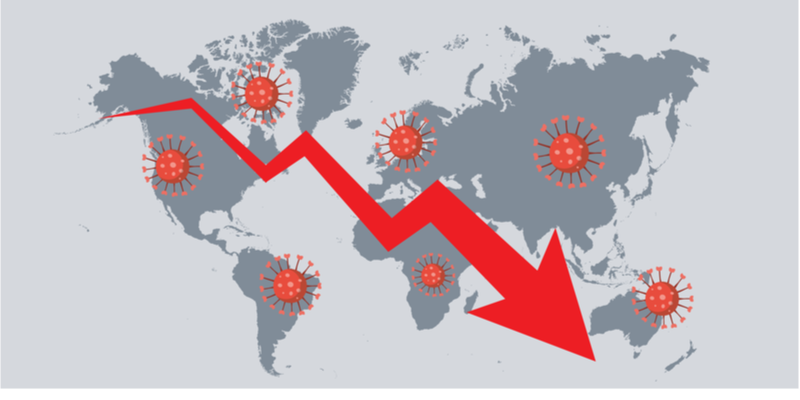
In this blog series, I am exploring insights from a recent roundtable discussion that I had with other industry experts on how a global industry responds to a pandemic.
In the first blog, we explored COVID-19 and how we think it will influence the future of work.
This second blog dives into how the pandemic has impacted the oil and gas workforce.
Downturn with a difference
The oil and gas workforce has experienced many downturns and due to its resilience, always seems to bounce back.
However, I think this time it’s slightly different.
The oil and gas sector has been struck not just by the pandemic, which cut a lot of industries deeply, but by a significant oil price crash, with US oil process falling by 34% in a couple of weeks.
The pandemic meant that a lot of people in the sector were completely unable to work – which hasn’t happened since the Spanish Flu.
This has led to a much more targeted hit on different service industries such as oilfield services. As we have seen, unemployment rates have skyrocketed, which will impact the global economy, especially the oil and gas workforce.

Gabriel Rio, CEO, Milestone Environmental Services agrees that the downturn feels different.
“There’s two major differences to this downturn. One is the speed at which it happened. This was not a lingering supply-and-demand imbalance, this was a rapid shutdown of the global economy.
It’s an external force that decimated demand overnight. Industries had to compress very, very fast. Onshore in the US, went from 800 to under 300 rigs in just months.
Going into 2015, both service and operating companies had access to capital – that’s the second difference. Investors were willing to invest and many saw the downturn as an opportunity to buy low.
This time it’s the total opposite. The industry has not recovered sufficiently to be attractive to investors and the Federal Reserve has identified oilfield services as a high-risk sector. That means companies will have to survive on their own.”
For companies short on cash during this downturn, COVID-19 is testing their resilience.
Many companies did such a great job in cutting costs last time. There’s not a lot left to cut – that’s the really tough part.

Impact of the downturn
As Rod Nelson, Chairman, Rival Downhole Tools said in the roundtable,
“Like the 1980s, the stronger, bigger companies will survive.
Smaller ones won’t. Some will go out of business, some will get consolidated – to reduce or share overheads – and we are already starting to see this all happening.”
Mark Dickinson, COO, Blue Water Energy, offered a slightly less positive view,
“I think that there could be casualties across the board – from investors to operators – who have a single-basin strategy.
In the US in particular, this may be the point when people acknowledge that they’ve lost too much money and they’re not investing in this anymore.”
I believe that there are opportunities and benefits as well – although it’s currently very tough for the oil and gas sector.
At the moment, there aren’t a lot of ‘investment dollars’ in oil and gas. However this could be a time for more opportunistic M&A. This would depend on how they are priced, or if there is something creative that could accelerate the pace of change or strengthen core values and culture.
It is also very interesting to see what this is doing and will do in terms of the sectors journey to decarbonization.
Gabriel Rio added
“I was very happy to see oil and gas reaffirming or even doubling down on their environmental initiatives.
Because of the downturn, their operational practices will dominate and for that to trickle down through some of the larger independents in the US as well will be good to see.
So, I think we will see much stronger, more responsible and thoughtful environmental practices overall – and a lot less environmental risk-taking.”
One of the silver linings of the pandemic has been that people have risen to their task and shown that they can actually do more when working flexibly. This will help to evolve how the oil and gas sector works.
